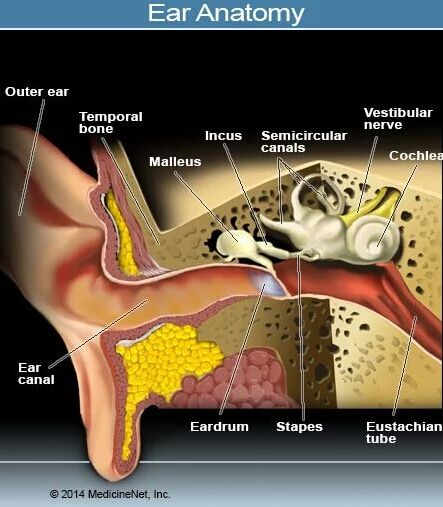How to remove a bug from your ear.
You got a bug stuck in your ear, or maybe someone you know did.
It sounds silly, but these things do happen, and it can be scary and uncomfortable when it happens to you.
A bug lodged in the ear can cause the sufferer to hear popping, crunching, and buzzing noises while experiencing tickling sensations or even painful feelings.
The natural reaction is to dig at the ear, but this is not the safest option. The bug needs to be removed from the ear properly so that more severe complications do not arise.

Step 1 - Stay Calm
Don’t panic.
Keep the hands away from the ear and resist the urge to move or shake your head. If you are a bystander and not the person being directly affected, talk to the person and try to keep them calm and still.
The bug itself is likely confused and may be stuck. Any interference with the hands or violent shaking may agitate it, and depending on what species it is, it may have teeth, pinchers, or a stinger that it will use in defense.
Being bit or stung in an area as sensitive as the inner ear can be very painful and very serious.
It is important to try to remain quiet for about 10 minutes to allow time for the bug to orient itself and see if it can get out on its own.
Step 2 - Try to See the Bug
If the bug does not remove itself from the ear, check to see if it’s visible. Use a flashlight to view the bug. This will help you decide if it’s possible to dislodge the bug without medical assistance.
Some bugs will try to move towards the light, thus leaving the ear. Other bugs will try to get away from the light and end up moving further into the ear. If the patient begins to feel more pain, immediately turn the flashlight off to avoid driving the insect deep inside.
Step 3 - Entice the Bug Out
Do not try to extract the bug with a probe or tweezers. This could push the bug further into the ear. Instead, have the patient lay their head to the side so that the ear with the bug is exposed. Then take a blade of grass and gently place it into the ear. The grass is pliable and will not harm the ear or push the bug further into the ear.
Allow the blade to stay in the ear for a few seconds and then remove. Do this a few times to see if the bug will grasp onto the grass. If the bug is in a position where it is still able to move, it will find the grass to be a familiar element from its regular environment and will move toward the blade, causing it to leave the ear.
Step 4 - Flush the Ear
If the insect does not leave the ear with the grass bait, try flushing the ear. Use oil and not water. A sudden, large amount of oil will immediately drown the bug, while water will agitate it and not kill it immediately, giving the bug time to flail, bite, or sting and potentially cause more harm to the person’s ear.
Baby oil and mineral oil are ideal options, but even choices like olive oil or vegetable oil will work if that is all that you have access to.
Make sure the patient is lying with the affected ear facing upwards. Place a towel around their face so that the oil does not fall into their eyes. A pipette can be used to put the oil directly into the ear.
Have the patient turn their head down so that the ear is facing the ground. This will allow the oil and the bug to drain out of the canal. If the bug comes out, cleanse the ear using the same process with warm water. The water will flush out the oil and anything else left in the ear.
Step 5 - Seek Medical Attention
If the bug still remains in the ear after following the above steps, it is advisable to seek medical attention.
If you call an emergency services number, follow any phone instructions they give you, and if you opt to drive directly to a hospital, be sure that the person with the bug in their ear remain as calm and still as possible during the drive over.